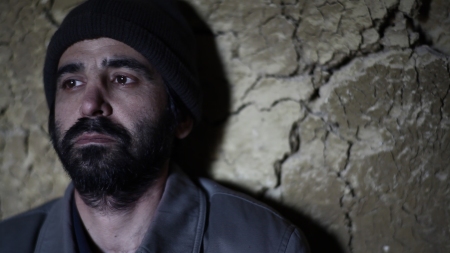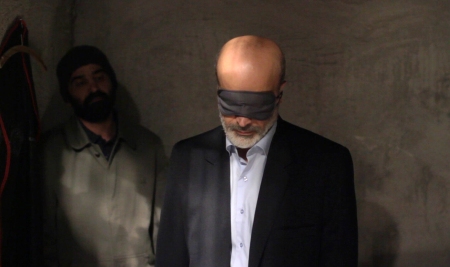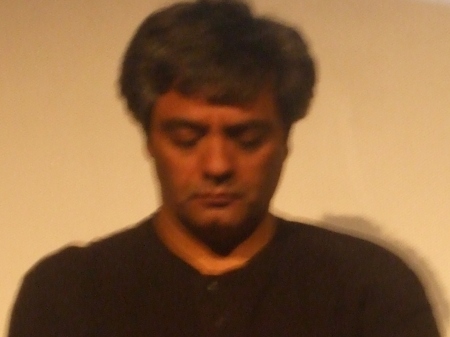Besides the high profile Tributes to Robert Redford and the Coen Brothers with T Boone Burnett, the Telluride Film Festival’s third Tribute was to Iranian filmmaker Mohammad Rasoulof (“The White Meadows”). In 2010, Rasoulof was arrested with fellow filmmaker and friend Jafar Panahi for working on an unauthorized film. Rasoulof was banned from filmmaking for 20 years and sentenced to 6 years in prison, commuted to 1 year on appeal.
Rasoulof was at Telluride in August of 2013 with his latest film “Manuscripts Don’t Burn” which earlier had been smuggled out of Iran to be shown at Cannes where it received the International Critics Prize. This film was shot clandestinely in Tehran and contains no credits as protection for those involved.
“Manuscripts Don’t Burn” is inspired by actual incidents. A group of Iranian writers was invited to a conference in Albania. The driver was supposed to drive to a cliff and jump out before the bus went over the cliff, killing the writers. The plan did not go off. Kasra, an aging author, has written his memoirs which include the plot to kill the bus of writers. Kasra is hoping to join his daughter who has left Iran.
The authorities have authorized two low-level thugs with their own personal issues to “dispose” of Kasra and his old friends who know of the memoirs. Rasoulof superbly captures the continual paranoia of government suppression. A character says “We don’t decide who’s innocent.” Tension mounts as everyday items like a bag or a suppository can have a sinister purpose. Violence is treated casually. An agent grabs a bite at the home of his victim. “Manuscripts” is a gripping view of living in a country where freedom is a crime.
After the film, Rasoulof said that the incident with the bus of writers was “public knowledge, not openly spoken about, kept quiet”. He said that in his film, he wanted to draw on his own experience and “merge reality and fiction” as he loves documentaries. Rasoulof said he had to decide “how closely loyal to reality” the film should be while shedding a “different light” on events. He added that his film “could have been excitably harsher.” He added that for “quotidian life”, it is hard to decide what choice to make on film. He said that he wanted to create an “exciting” film from “all the points of view.”
Rasoulof said that his personal experiences have informed his filmmaking, and his take on the arts has completely changed. He wants to “tell stories” that elicit a political response. He added that “In dictatorship, everything is political, even the sandwich at end [of his film].” He said he does not want to change any regime, and his films are “just looking at how people live.”
From Iran, Rasoulof said there are “so many in exile”, adding “Some bend”, while some “took risk like Jaffir [Panahi], sequestered in his home.”
After making Manuscripts Don’t Burn”, Rasoulof said “I need to rest, this film aged me, I went grey overnight because of pressure.” At the time he was living in Hamburg, Germany which he poignantly commented “doesn’t have the same mountains” as his childhood. He added “I would like to go home to Iran” and there is a “lot of censorship in my country.”
The latest information on Rasoulof was that after Telluride in Septermer, 2013 he flew to Iran, intending to return to Hamburg later that month. Iranian authorities confiscated his passport and he remains unable to leave Iran.


